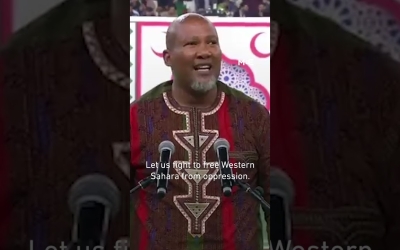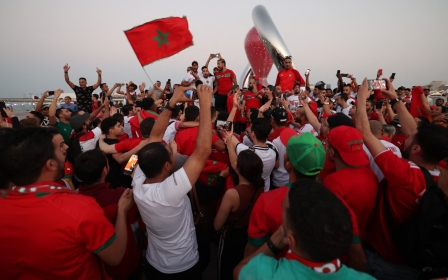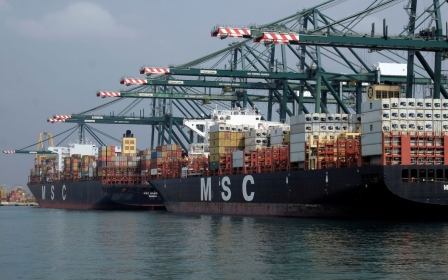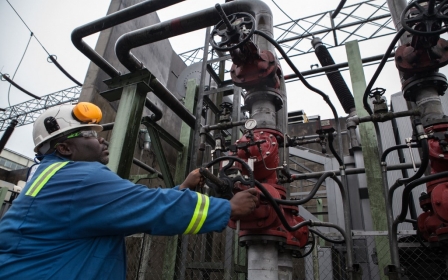Mandela's grandson faces racist abuse over Western Sahara solidarity
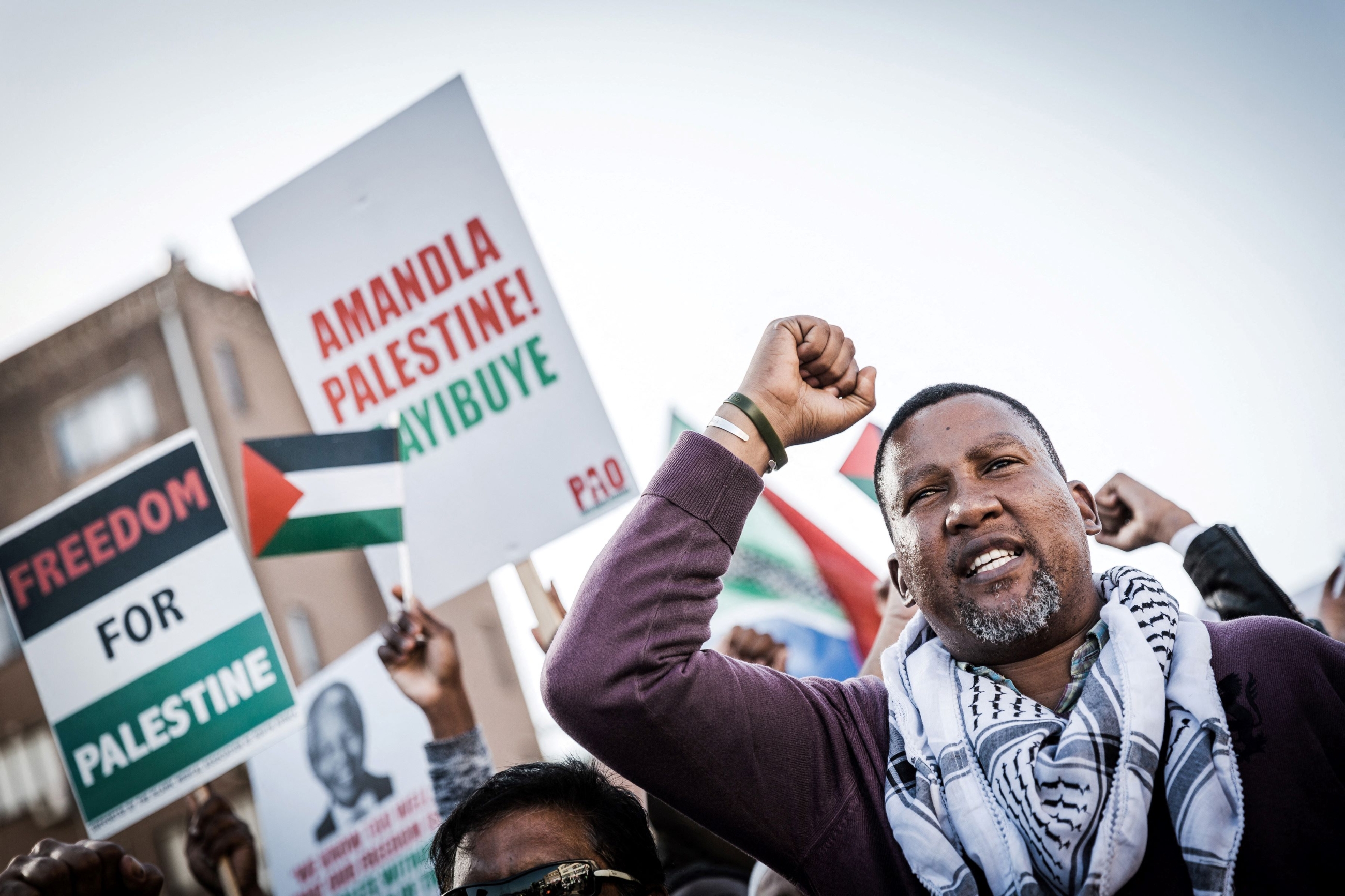
The grandson of former South African President Nelson Mandela has provoked a storm of racist abuse online after he referred to Morocco-controlled Western Sahara as Africa's "last colony" in a speech.
Speaking at the opening of the African Nations Championship football tournament on Friday in Algiers, Zwelivelile Mandla Mandela called for the "liberation" of Palestine and Western Sahara.
“We say that, in his [Nelson Mandela] honour, let us not forget the last colony of Africa, Western Sahara, let us fight to free Western Sahara from oppression," he told the crowd.
The comments provoked fury from Morocco, who denounced them as "provocative" while the African Nations Championship organisers, the Confederation of African Football, said on Sunday it would be opening an investigation into the issue.
On social media, in the days following the controversy, Mandela was subjected to a wave of criticism from Moroccans, as well as racist abuse including monkey pictures.
"Shame on you and your family name to attack Morocco's territorial sovereignty. It's wrong for you to do so, you destroy your grandfather's legacy and you look like an ignorant," wrote one user to his Twitter account.
Another user wrote: "how much is your price n***er? I would like to buy you to herd some camels I have from Moroccan Sahara."
Others users claimed he had been bought off by 2023 CHAN host nation Algeria, which has long been a supporter of Western Sahara independence.
"The new slave face of Algerian petrodollars. Come and try to penetrate the Morocco Sahara, then you will see what are we doing with terrorist like you," one user wrote.
During the CHAN opening match in the Algerian capital, video also emerged of Algerian fans chanting against Morocco, denouncing them as "animals" and saying "give them bananas".
The African Nations Championship takes place once every two years and is organised by the Confederation of African Football since 2009.
Morocco has claimed Western Sahara as part of its territory since the end of Spanish colonial rule in 1975.
Though that status has long been disputed internationally, in December 2020 then-US President Donald Trump agreed to recognise Moroccan sovereignty over the territory in exchange for Moroccan recognition of Israel, a position the current Biden administration has not reversed.
Sahrawi campaigners have regularly faced arrest, raids and violence from Moroccan authorities in the territory, with several female activists in particular being threatened with, and subjected to, sexual assault.
Between 1975 and 1991, the Polisario Front - an Algeria-backed Sahrawi group - fought an armed struggle with Morocco for independence for Western Sahara.
In 1991, a ceasefire was established that broke down in November 2020, leading to resurgent violence and the deterioration of relations between Morocco and Algeria.
Since then, Sahrawi campaigners have complained of an intensifying crackdown by Moroccan authorities.
Middle East Eye propose une couverture et une analyse indépendantes et incomparables du Moyen-Orient, de l’Afrique du Nord et d’autres régions du monde. Pour en savoir plus sur la reprise de ce contenu et les frais qui s’appliquent, veuillez remplir ce formulaire [en anglais]. Pour en savoir plus sur MEE, cliquez ici [en anglais].


